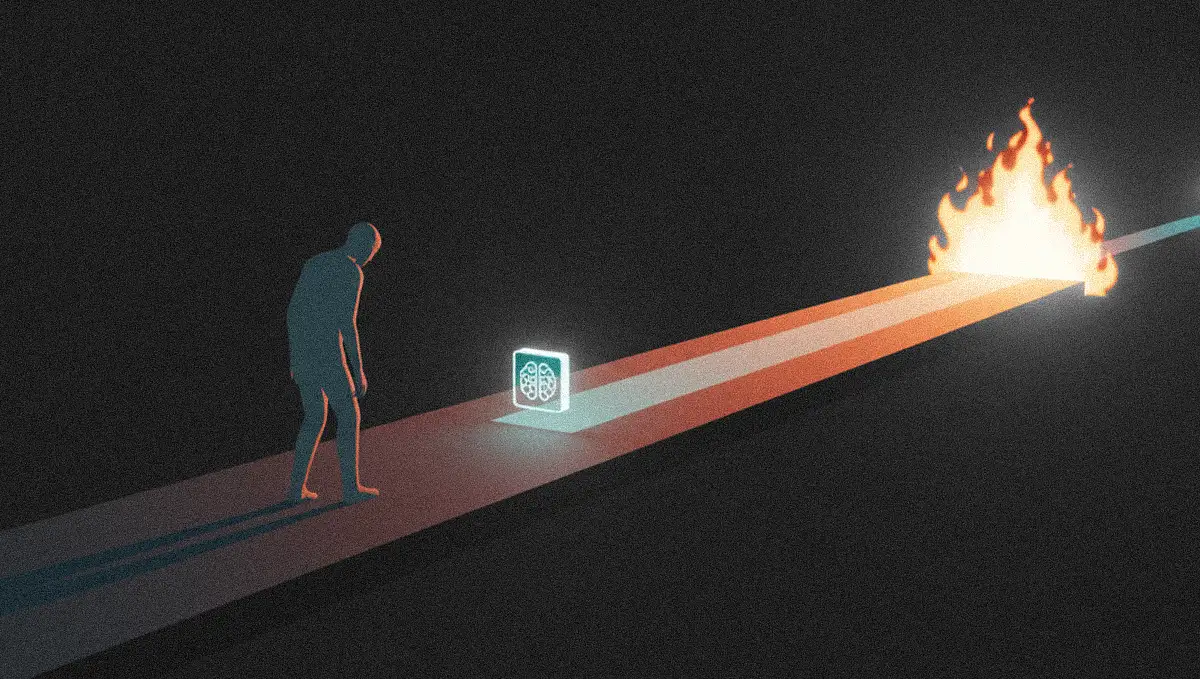In HR’s ‘year of turnover,’ even CHROs are rethinking what comes next

Key Points
HR professionals face high burnout and leadership turnover, prompting a reevaluation of career paths beyond the CHRO role.
Amanda Rassi of search firm StevenDouglas notes increased job movement in HR, driven by stagnation and lack of investment in talent.
Experienced CHROs are exploring new roles in consulting and thought leadership instead of traditional positions.
Specialization in high-need areas like payroll and compensation is crucial for HR professionals to stand out in an employer’s market.
It seems like everybody wants a new job. It's the year of turnover. If you’ve got good employees, be prepared to lose them—or do everything you can to keep them.

Amanda Rassi
VP of HR Search
StevenDouglas
The HR identity crisis is here. Burnout is high, leadership turnover is rampant, and the pressure to master analytics, tech, and strategy is reshaping what it means to work in HR. More leaders are rethinking the traditional career arc and asking a new question: What comes after the CHRO title?
Amanda Rassi, VP of HR Search at StevenDouglas, is witnessing it all first hand, from leadership exits to changing career ambitions and growing demands on HR to deliver more strategic value.
The year of turnover: “It seems like everybody wants a new job,” says Rassi. “It’s the year of turnover. If you’ve got good employees, be prepared to lose them—or do everything you can to keep them.” She sees more movement now than even during peak COVID churn, with active job seekers, passive candidates testing the waters, leaders stepping down on their own terms, and others being quietly shown the door.
Grass is greener: For many, it comes down to stagnation and compensation. Rassi also sees a “grass is greener” mindset and a lack of real investment in HR talent. “Companies aren’t empowering them to do more, to create more,” she says. “A lot of the people I work with want to drive change, not fall back into admin roles.” Once the heavy lifting is done and growth stalls, many start looking for what’s next.
The post-CHRO pivot: The conversation Rassi has been having “on repeat” centers on experienced CHROs leaving their roles—voluntarily or not—and holding off on jumping back into another CHRO post. “They’re asking if there’s something else they can do with their skill set, their expertise, and their persona that feels exciting, enlightening, and helpful to others,” she says. Some are exploring authorship, consulting, training, think tanks, or thought leadership. “I’ve never heard these conversations before, but they’re happening now, and with really talented people,” says Rassi.
Getting AI curious: As for AI, Rassi doesn’t see a skills gap. She sees a curiosity gap. “The early adopters will be the most marketable,” she says. Her advice? Dive in. “The only way to learn is to get your hands on the tools,” says Rassi. “Start demoing them. See how they can make your life easier, even in small ways.”
“Learning AI is going to take HR to the next level,” Rassi says. “It’ll make you more proficient with admin work and free you up to be more impactful.” From compensation analysis to workforce planning, the potential is huge, but only if HR professionals are willing to engage. “It’s about making the function more strategic and more tech-forward. That’s exciting.”
Specialize or stagnate: While the market feels “pretty normal” right now and Rassi expects it to strengthen, she’s clear: It’s an employer’s market, and standing out requires focus. “There are a lot of HR generalists, even at the VP and CHRO levels,” she says. “What’s going to set people apart is specialization.”
She points to high-need areas like total rewards, payroll, benefits, and compensation. “Payroll is a serious profession, and I think it gets minimized. We need better and stronger professionals in those areas,” says Rassi. With AI poised to absorb much of the generalist workload, deep expertise is the edge. “This is a great time to be in HR,” Rassi says. “And a great time to specialize.”
They’re asking if there’s something else they can do with their skill set, their expertise, and their persona that feels exciting, enlightening, and helpful to others.

Amanda Rassi
VP of HR Search
StevenDouglas
They’re asking if there’s something else they can do with their skill set, their expertise, and their persona that feels exciting, enlightening, and helpful to others.

Amanda Rassi
VP of HR Search
StevenDouglas
Related articles
TL;DR
HR professionals face high burnout and leadership turnover, prompting a reevaluation of career paths beyond the CHRO role.
Amanda Rassi of search firm StevenDouglas notes increased job movement in HR, driven by stagnation and lack of investment in talent.
Experienced CHROs are exploring new roles in consulting and thought leadership instead of traditional positions.
Specialization in high-need areas like payroll and compensation is crucial for HR professionals to stand out in an employer’s market.

Amanda Rassi
StevenDouglas
VP of HR Search

VP of HR Search
The HR identity crisis is here. Burnout is high, leadership turnover is rampant, and the pressure to master analytics, tech, and strategy is reshaping what it means to work in HR. More leaders are rethinking the traditional career arc and asking a new question: What comes after the CHRO title?
Amanda Rassi, VP of HR Search at StevenDouglas, is witnessing it all first hand, from leadership exits to changing career ambitions and growing demands on HR to deliver more strategic value.
The year of turnover: “It seems like everybody wants a new job,” says Rassi. “It’s the year of turnover. If you’ve got good employees, be prepared to lose them—or do everything you can to keep them.” She sees more movement now than even during peak COVID churn, with active job seekers, passive candidates testing the waters, leaders stepping down on their own terms, and others being quietly shown the door.
Grass is greener: For many, it comes down to stagnation and compensation. Rassi also sees a “grass is greener” mindset and a lack of real investment in HR talent. “Companies aren’t empowering them to do more, to create more,” she says. “A lot of the people I work with want to drive change, not fall back into admin roles.” Once the heavy lifting is done and growth stalls, many start looking for what’s next.
The post-CHRO pivot: The conversation Rassi has been having “on repeat” centers on experienced CHROs leaving their roles—voluntarily or not—and holding off on jumping back into another CHRO post. “They’re asking if there’s something else they can do with their skill set, their expertise, and their persona that feels exciting, enlightening, and helpful to others,” she says. Some are exploring authorship, consulting, training, think tanks, or thought leadership. “I’ve never heard these conversations before, but they’re happening now, and with really talented people,” says Rassi.

Amanda Rassi
StevenDouglas
VP of HR Search

VP of HR Search
Getting AI curious: As for AI, Rassi doesn’t see a skills gap. She sees a curiosity gap. “The early adopters will be the most marketable,” she says. Her advice? Dive in. “The only way to learn is to get your hands on the tools,” says Rassi. “Start demoing them. See how they can make your life easier, even in small ways.”
“Learning AI is going to take HR to the next level,” Rassi says. “It’ll make you more proficient with admin work and free you up to be more impactful.” From compensation analysis to workforce planning, the potential is huge, but only if HR professionals are willing to engage. “It’s about making the function more strategic and more tech-forward. That’s exciting.”
Specialize or stagnate: While the market feels “pretty normal” right now and Rassi expects it to strengthen, she’s clear: It’s an employer’s market, and standing out requires focus. “There are a lot of HR generalists, even at the VP and CHRO levels,” she says. “What’s going to set people apart is specialization.”
She points to high-need areas like total rewards, payroll, benefits, and compensation. “Payroll is a serious profession, and I think it gets minimized. We need better and stronger professionals in those areas,” says Rassi. With AI poised to absorb much of the generalist workload, deep expertise is the edge. “This is a great time to be in HR,” Rassi says. “And a great time to specialize.”




